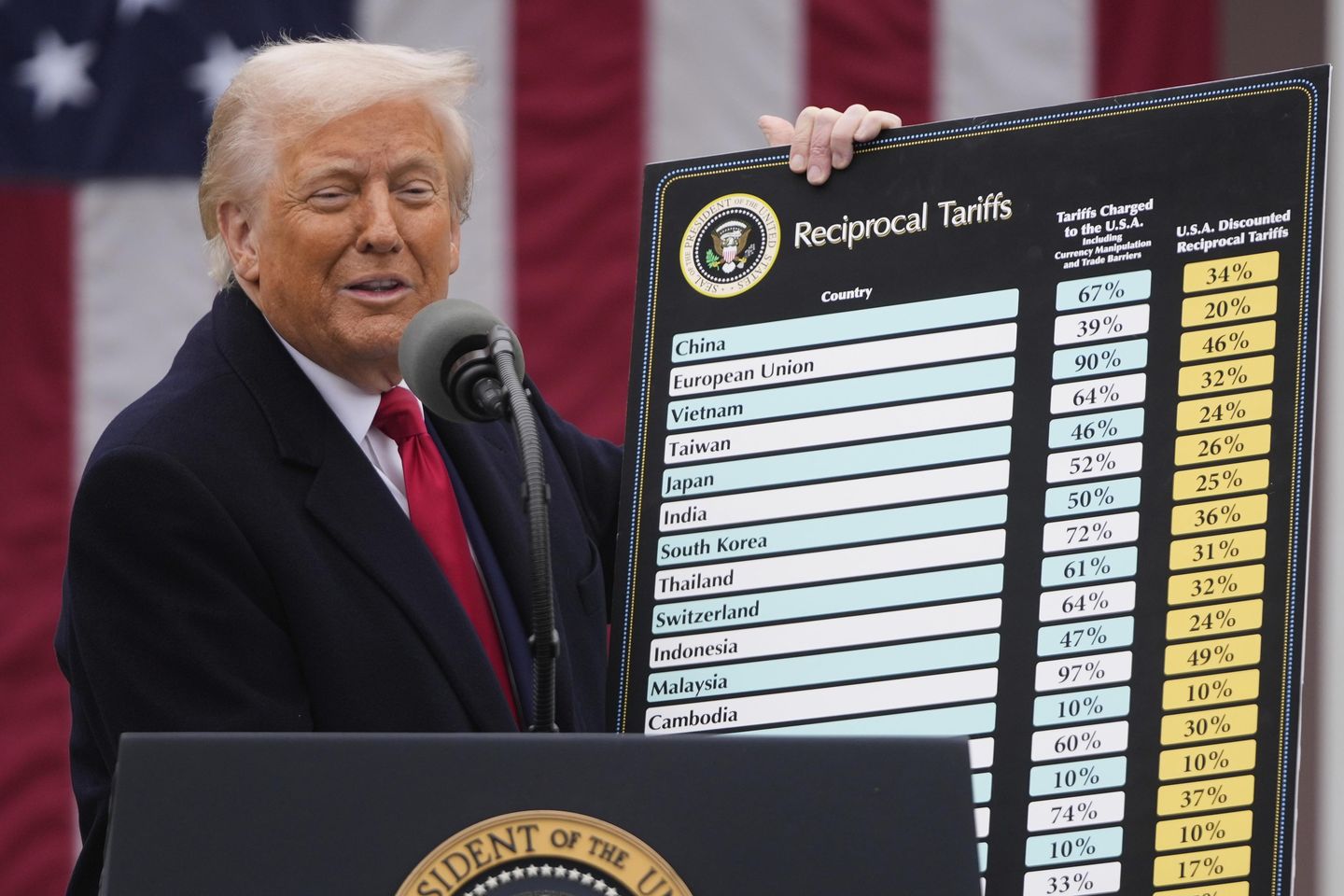
The House voted Tuesday to continue to suppress its own authority to repeal President Trump’s tariff policies, leading to a mini-GOP revolt on the floor.
Six Republicans initially voted against a procedural rule that included provisions to turn off, through March 31, the authority lawmakers have under the National Emergencies Act to end tariffs that the president put in place via an emergency justification.
The six votes would have been enough to kill the rule, which was needed to set up debate on a D.C. crime bill and other legislation that House Republicans want to vote on this week. But GOP leaders held the vote open and negotiated with the holdouts, getting three to flip their votes to “yes.”
In the end, the rule was adopted, 213-211. Three Republicans — Reps. Kevin Kiley of California, Thomas Massie of Kentucky and Victoria Spartz of Indiana — joined all Democrats in opposition.
The three Republicans who initially voted “no” but flipped to “yes” under pressure from GOP leaders were Reps. Don Bacon of Nebraska and California Reps. Tom McClintock and Jay Obernolte.
The House voted earlier in the year to temporarily remove lawmakers’ ability to force votes on joint resolutions of disapproval that could repeal the president’s tariff policies. Tuesday’s rule extended that shut-off through March 31.
Mr. McClintock said he changed his vote after House Speaker Mike Johnson agreed to use another rule vote later this week to change the end date of the extension to Jan. 31.
The speaker also agreed “to immediately convene a working group within the Republican conference to address the tariff issue, including possible measures to modify existing policy and clarify Congress’s role in setting that policy,” Mr. McClintock posted on social media.
The Washington Times reached out to Mr. Johnson’s office for comment.
Mr. Kiley told reporters that while he did not oppose the previous efforts to turn off the tariff authority, he did so Tuesday because he’s frustrated it “has become a pattern.”
“I don’t agree with the way that we’re using rule votes to essentially affect substantive policy in a way that’s unrelated to setting the terms of debate and bringing bills to the floor,” he said.
Mr. Kiley said his vote was not a protest to any specific tariffs so much as it was about “the broader issue of Congress protecting its prerogatives as an institution.”
Mr. Massie also took issue with removing Congress’ ability to force a vote on the president’s tariffs, calling it a “total and complete retreat of our constitutional duty to vote on taxes.”
Senate Democrats have used the National Emergencies Act authority to force votes twice during this Congress on Mr. Trump’s tariff policies. One to repeal tariffs he levied on Canada passed with the help of a few Republicans, but the other failed to end the president’s more sweeping “reciprocal” tariffs.











